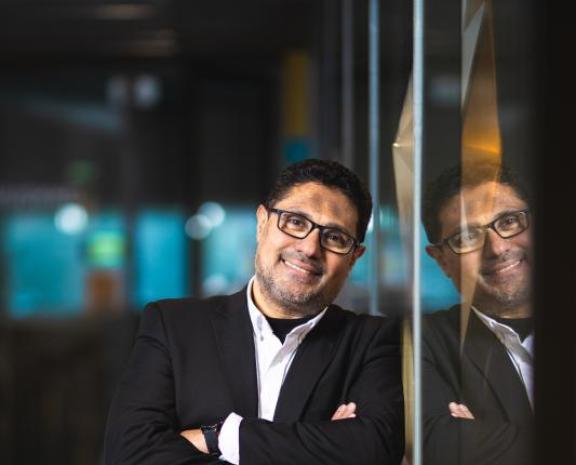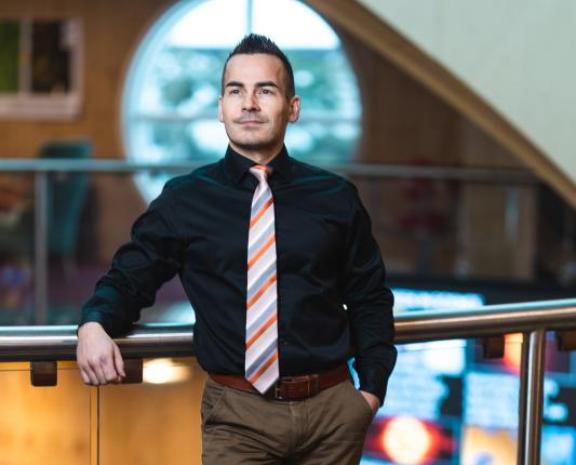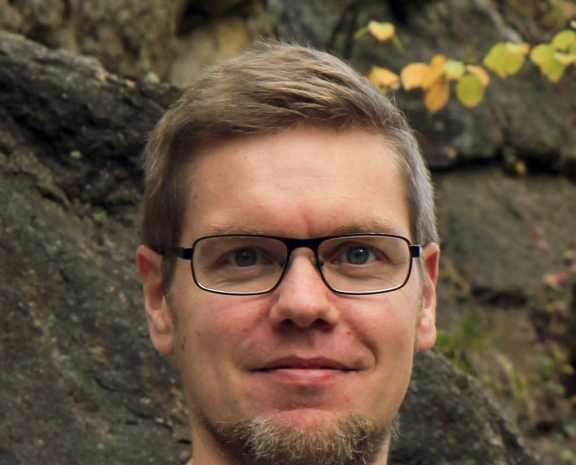Niina Mäntylä

Niina Mäntylä, Associate Professor of Public Law, examines issues of responsibility and supervision brought about by digitalisation. She believes that research can improve the legal security of public official and clients of public administration. In the future, legal-administrative skills will become more important in the public sector, which will increase the importance of research on this topic. Niina enjoys the hectic work, that allows her to influence legislation.
What are you researching right now?
I am particularly interested in liability and control in the public sector, and we have two ongoing research projects in this area. They deal with the development of supervision in primary schools in a Nordic context and with liability in the changing environment of public administration. Both projects also involve a legal comparison, which means examining the legal systems of two or more countries in parallel. Comparative research is used, for example, when preparing new legislation or when seeking to harmonise the laws of different countries. Together with a multidisciplinary team of authors, we have also recently published research on the future competencies of public administration, meaning the skills that will be needed in future public administration.
Why is it important to study public law?
Public law needs to be studied because the control of public authority is one of the basic preconditions for a functioning society. The new dimensions of digitalisation have not yet been fully resolved from a legal perspective. For example, research is needed on liability and compensation issues related to automated decision-making.
What inspired you to do research?
I was interested in this particular topic because I believe that clarifying liability and control issues will strengthen the legal protection of both the public officials themselves and the clients of the administration. The topic and the challenges are common, for example, with other Nordic countries.
Which of your research findings would you highlight at the moment?
Legislation is open to interpretation and liability issues are not clear, for example, due to outsourcing and digitalisation of administration. If public officials do not have sufficient support to make legal decisions in situations where the interpretation of the law is uncertain, mistakes are more likely to occur and, on the other hand, over-cautious interpretation of the law. In addition, resource issues are also a major challenge from a legal liability perspective. For example, public officials may face criminal liability in situations over which they have little control.
What is your advice to society?
The research is still ongoing, but in late 2021 we will be compiling proposals for solutions to our liability and control issues. One of the main messages from the expert panels is that the need for juridical-administrative skills in the public sector and its interfaces will become even more important in the future. Further training and qualifications should, therefore, be increased and refined to meet these needs.
How has the job of a researcher changed or will change? What are the platforms on which researchers move?
Researchers' work is now more networked and project-based, which also affects research topics. Social media is also more involved, which has both advantages and disadvantages. However, I believe that the researcher's primary task should be to research to deepen and broaden his or her current expertise. This expertise enables them to contribute to the social debate.
Is your work social: do you meet a lot of people? Does your work involve travelling?
My work is social because I do a lot of research together. Digitalisation makes it easier to connect with colleagues in the Nordic countries, for example. Even when working remotely, meetings have taken place almost every day. Normally, I travel almost weekly inside of Finland and a few times a year abroad. Domestic travel is often related to, for example, expert and continuing education assignments.
What kind of work do you do and how do you organise your working hours?
The work is quite hectic, but interesting and stimulating. Time constraints keep things busy, for example, finishing articles or projects whatever the time of day.
Where do you find strength and well-being at work?
I get most of my energy from my attitude. I look at my work more from the perspective of what I have achieved than what I still have to do.
Facts
Niina Mäntylä
- Assignment: Associate Professor of Public Law (tenure track) in the School of Management.
- Educations: Doctor of Administrative Sciences, University of Vaasa, 2010 and Master of Laws, University of Helsinki, 2014
- Career: Working in research and teaching at the University of Vaasa since 2004. Works also in research platform InnoLab.
- Receach projects: Kuka valvoo peruskouluja? -hanke (funded by Kunnallisalan kehittämissäätiö) ja Virkavastuu julkishallinnon muuttuvassa toimintaympäristössä -hanke ( funded by Valtioneuvoston tutkimus- ja selvitystoiminta, VN TEAS


